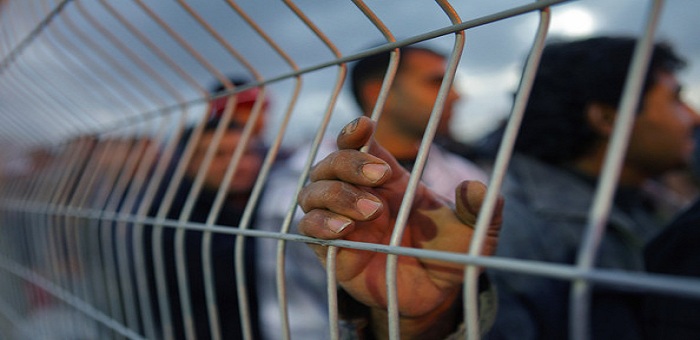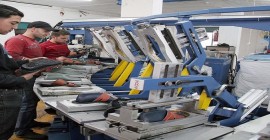Experts: Boycotting Israeli Products Won’t Harm Palestinian Workers

Asma Marzouq – Palestine Economy Portal
Translated by Tamara Barakat
Anas Abu Arqoub, expert on Israeli affairs, said that it is unlikely that the Palestinian Government’s decision to boycott five Israeli companies would harm Palestinians who work in the 1948 Proper, as the majority of the workers at the boycotted companies are Jews and they are located in cities that do not have mixed populations.
The Labor Market Information System at the Ministry of Labor reveals that there are no Palestinian workers carrying a work permit employed at any of those five Israeli companies.
A few days ago, the Palestinian Government decided to ban the entry of the products of five Israeli companies into the West Bank, in response to Israel’s ban on the entry of the products of five Palestinian companies into Jerusalem and the 1948 Proper.
Read more: Ban on Entry of Israeli Products to Reflect Positively on Palestinian Economy.
Moreover, Arqouq explained that the boycotted five Israeli companies require their employees to serve in the Israeli military, which means that even Palestinians who hold an Israeli citizenship are not allowed to work in these companies.
Tnuva Company, the largest among the five companies, is not a purely Israeli owned company, Arqoub added. 58% of its shares are owned by a Chinese company called Bright Food.
Additionally, Nasser Abdel Karim, an economic expert, believes that any concerns about a layoff of Palestinians who work in the Israeli companies are unwarranted, since they are large companies that would not be forced to shut down if they lose their market share in the Palestinian market.
He also mentioned that the positive effect of the Government’s decision on the Palestinian economy will be larger than its negative effect on the Israeli economy, since the Palestinian economy is small, and the market share of the Palestinian products banned from entering into Jerusalem is also small.
The Boycott, Divestment and Sanctions Movement (BDS Movement) welcomed the Government’s decision and demanded that the boycott include all of the Israeli occupation’s products. The BDS Movement also rejected having such a decision be made in response to an Israeli measure since this means that the decision might be revoked as soon as the Israeli measure stops.
Regarding whether Palestinian workers in Israel might lose their jobs because of the boycott, Mahmoud Nawajaa, a BDS activist, said, “The boycott is an act of resistance that aims to end occupation, and naturally, it will lead to some marginal losses.”
Nawajaa believes that boycotting the occupation’s products will provide an opportunity for the consumption of the local national product and will create alternative job opportunities to those available in Israel.
He emphasized the Government’s role in formulating strategies and setting plans to expand the boycott campaign and create job opportunities for workers.
According to the Labor Market Information System, 58,000 Palestinian workers who carry a work permit are employed in Israel, 3% of whom work in the industrial sector, 12% in the agricultural sector, and 80% in the construction sector.
Moreover, according to the statistics of the Bank of Israel, 34,000 Palestinian workers are employed in Israel without a work permit, increasing the overall number of Palestinian workers who are employed in Israel to 92,000.
During the past two weeks, the Israeli occupation’s police arrested 1200 Palestinian workers without permits and 150 employers in over 3150 locations.
The Knesset approved on March 16, 2016 a new law that toughens penalties imposed on employers who hire Palestinian workers without permits.
The World Bank issued a report at the beginning of 2015 in which it revealed that the Palestinian labor in Israel is very important to the Palestinian economy, since, according to the Palestinian Central Bureau of Statistics, the wages of Palestinian workers in Israel formed around 12.3% of the GDP in 2013, which amounted to $11.4 billion.
Read more: Govt Bans Entry of Five Israeli Companies’ Products into Palestinian Market.





